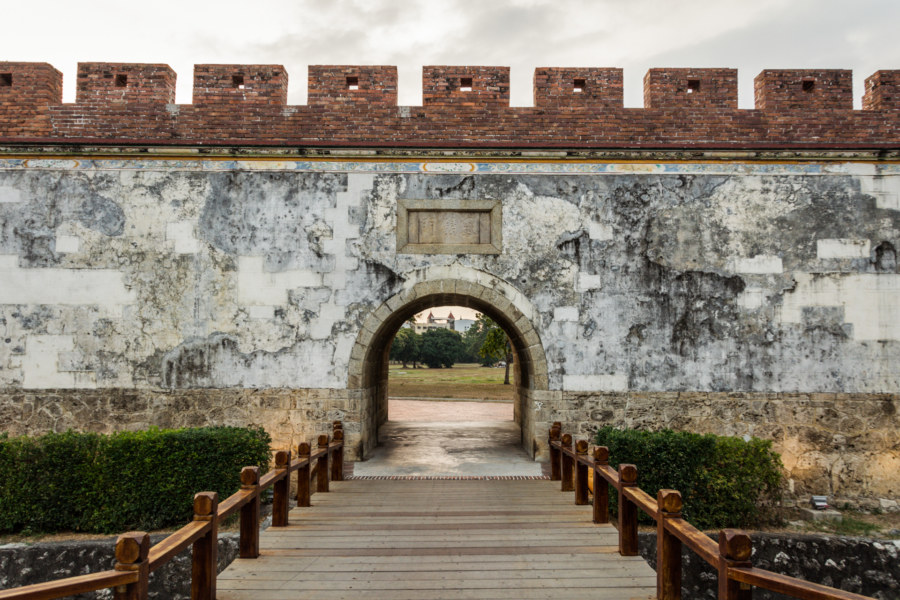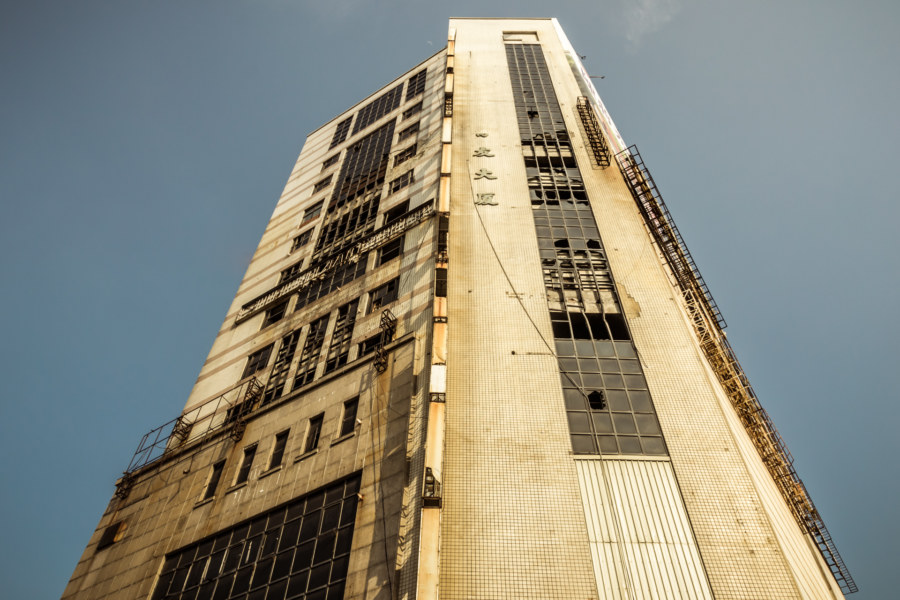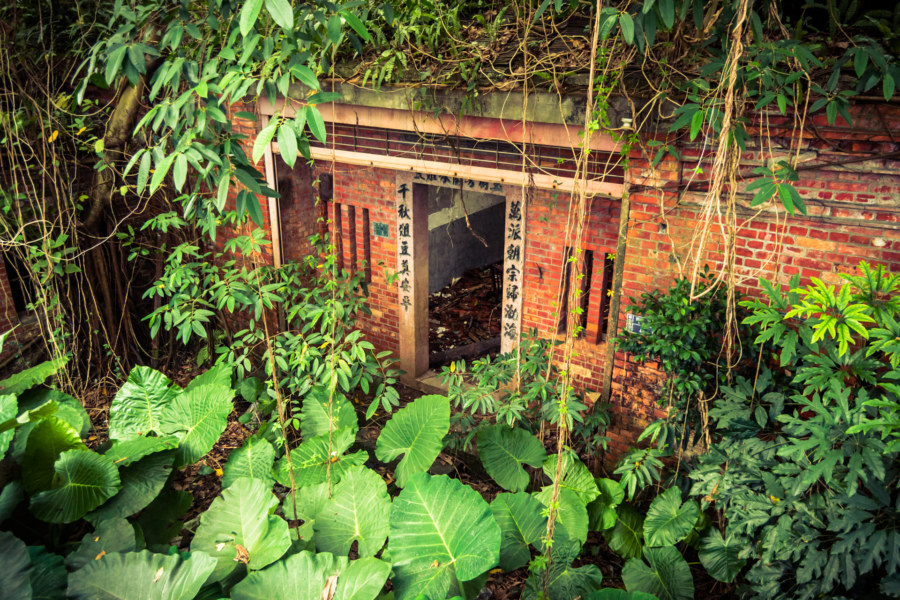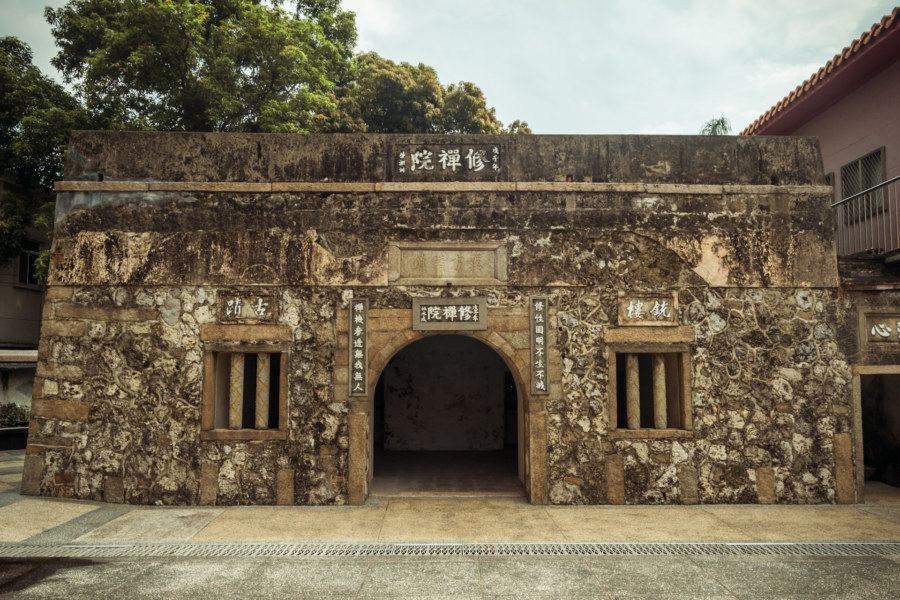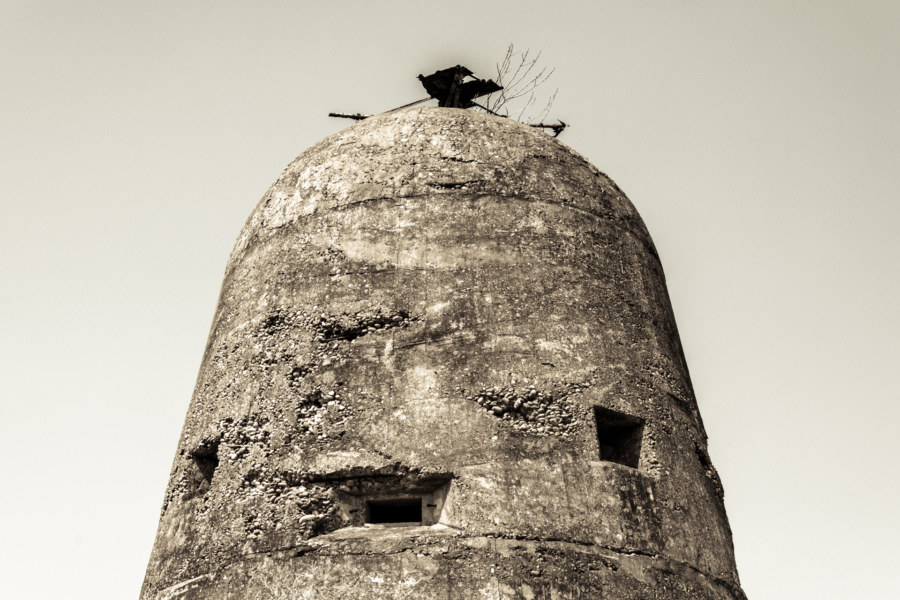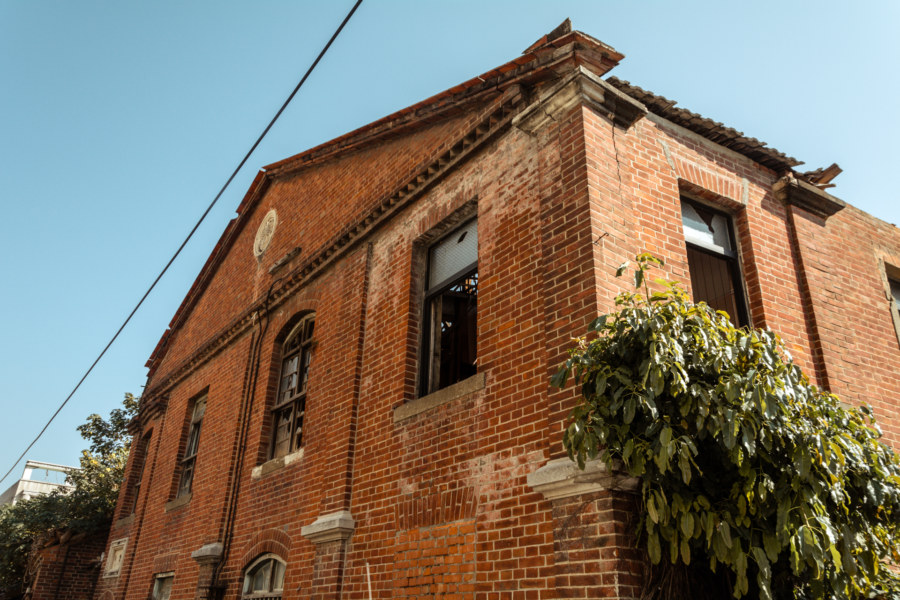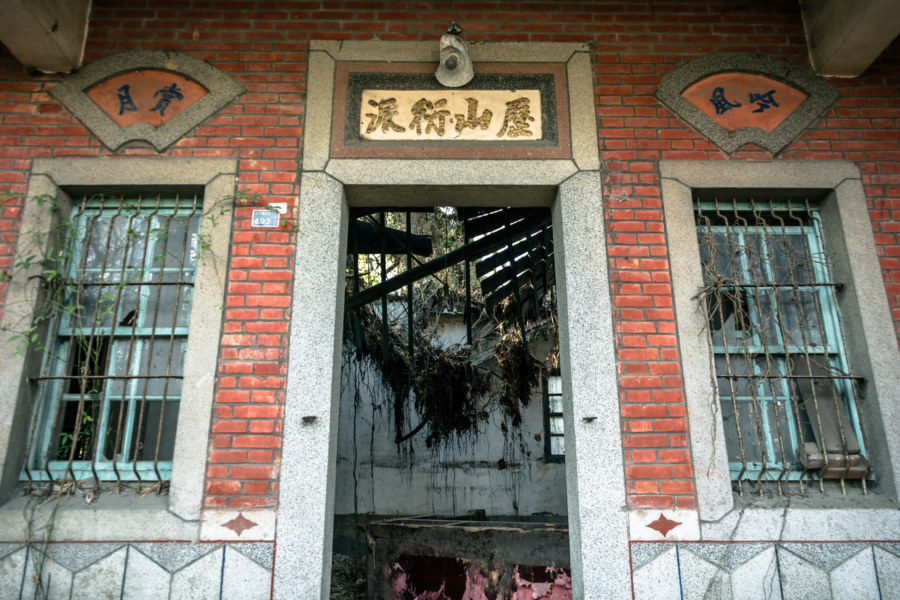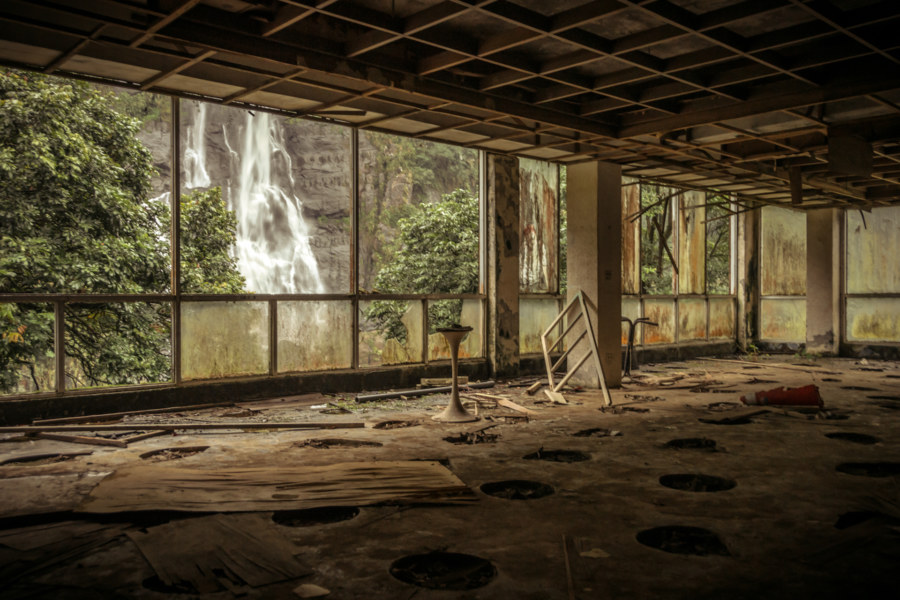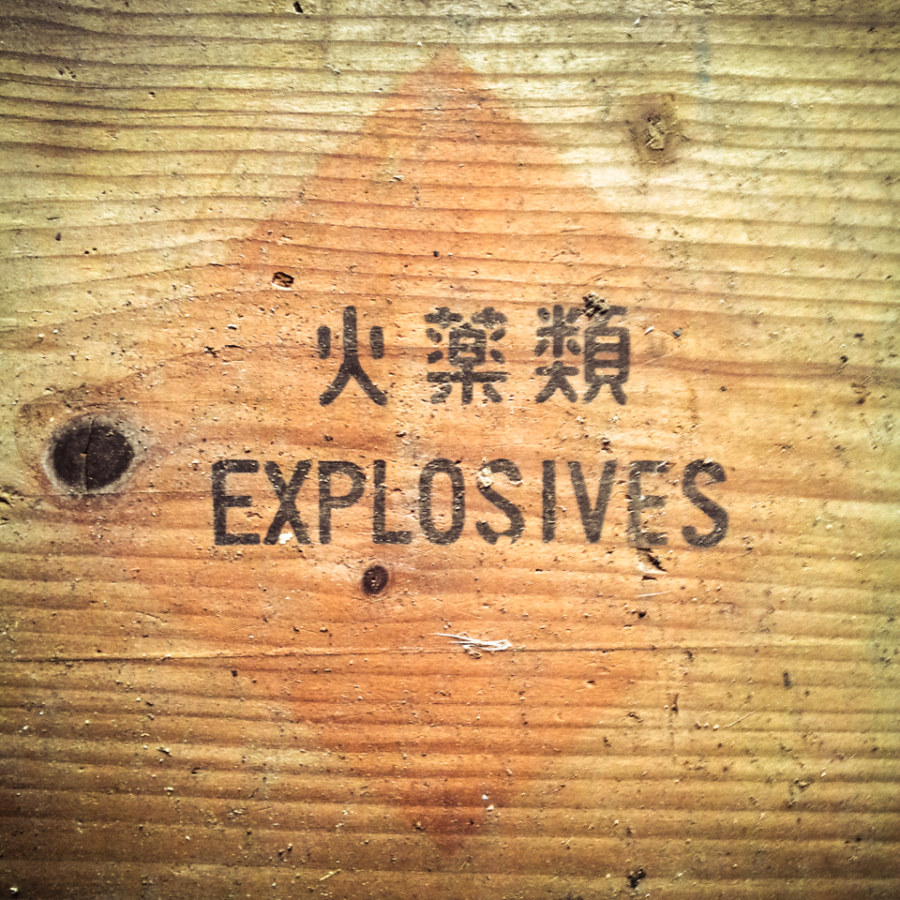A month ago I embarked upon a day trip to Zuoying to check out the famous temples and pagodas of Lotus Pond 蓮池潭, one of the main tourist attractions of greater Kaohsiung. Afterwards I wandered over to have a look at the old city of Zuoying 左營舊城, originally built in 1722 by the ruling Qing Dynasty in response to the many uprisings that regularly plagued Taiwan Prefecture 臺灣府.
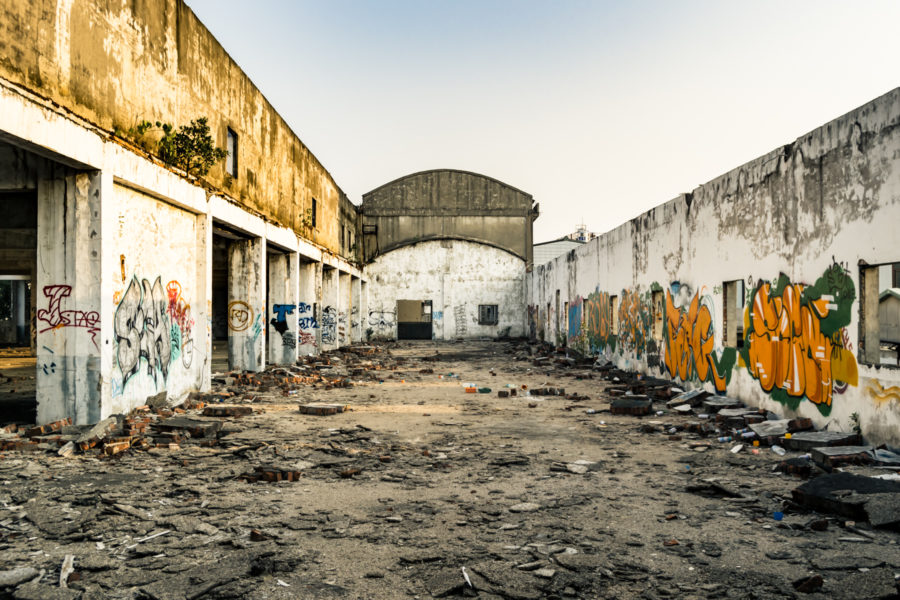
Abandoned buildings and other manmade structures left to the elements. Here I will share the results of various expeditions I have undertaken around the world. See also: urbex, rewilding, and the entire abandoned Taiwan series.
Adjacent Terms
Qiaoyou Building 喬友大廈
I have been living next to the magnificent ruins of the Qiáoyǒu Building 喬友大廈 in Changhua City for the last several months. Not a day goes by where I’m not walking or riding by this hulking derelict, looking up and wondering about what I might find inside. I had some general idea, of course, as I already recognized the building for what it was: one of many shopping and entertainment complexes built in central Taiwan during the economic boom of the late 1970s and early 1980s. Most of these former showpiece properties have been abandoned in the decades since, usually due to some combination of mismanagement, declining fortunes, and fire damage.
Xindian Old House 新店老屋
Not long after moving to Wenshan in Taipei I went out riding to explore the neighbourhood. At some point I found myself on the opposite side of Jingmei River from where I was living at the time. Nestled into a bend in the river, this small nub of land was home to several factories, office buildings, and hotels that looked like they probably charged by the hour. There were almost no homes whatsoever—which seemed rather strange for that part of the city—but as I cycled along a Bǎoqiáo Road (寶橋路) laneway I noticed a traditional home hidden in the foliage to one side and stopped to investigate.
Xunfang Fortress 巽方砲台
Xunfang Fortress 巽方砲台 is another obscure historic site in Tainan that I found while digging into the archives of the excellent Tainan City Guide. This Qing dynasty era ruin can be found on the grounds of a monastery in East Tainan not far from the location of Dadong Night Market 大東夜市.
Anping Tree House 安平樹屋
Anping Tree House (安平樹屋) is one of the main attractions in Anping, the old colonial quarter of Tainan, and yet another example of disaster tourism in Taiwan. I only got around to going over the lunar new year break despite having lived in Tainan for several months last year. I suppose the fact that it is an actual tourist attraction kept me from checking it out before, but I’m glad I went. Since a few of the photos turned out well enough to share I figure I may as well add it to my growing catalog of abandoned places around Taiwan.
Changhua Aerodrome Fortifications 彰化飛行場古砲台
One of my idle pursuits this mild winter has involved documenting all the obscure and unusual stuff I find in my travels around Changhua. When I go riding I prefer to take winding roads that twist and turn through old villages rather than the newer thoroughfares that directly connect communities in the countryside. Sometimes this pays off—for instance, while exploring some of the side roads on my way to Lukang I found this strange looking building amid the rice fields and rural industrial sprawl.
Yangliufeng Mansion 楊柳風燒酒全故宅
During the Japanese colonial era the liquor trade in Taiwan—along with tobacco, camphor, and several other goods—was tightly controlled by a government agency, the Monopoly Bureau. Alcohol was sold exclusively through a network of authorized distributors, many of whom were local Taiwanese who evidently became quite wealthy, as this crumbling yet majestic ruin in the back alleys of Changhua City would suggest. Located along a small laneway just off Mínshēng Road 民生路, this two-story brick mansion was formerly the residence of the local liquor monopoly distributor.
Hemei Yao Family Old Home 和美姚家老屋
I went out riding through Hemei not so long ago, drawn by the allure of a mysterious building that I will write about sometime soon. On the return trip I noticed this old home peeking out of the woods at the side of Zhāngxīn Road 彰新路, better known as highway 139. I don’t stop every time I see the signs of abandonment—for I would never get anywhere at all in rural Taiwan if I did so—but this place seemed worth a look. After pushing through the overgrowth I was impressed by the beauty of the stonework and inscriptions on the outside of the building.
Wulai Qingpu Hotel 清瀑大飯店
While on a day trip to Wulai at the very end of 2013 I was delighted to stumble upon one of the most picturesque abandonments I have had the pleasure of exploring in Taiwan. Mere steps from the southern terminus of the Wulai Sightseeing Tram 烏來觀光台車 one will find a viewing platform across from Wulai Falls 烏來瀑布, one of the most scenic waterfalls in the greater Taipei area. What you might not realize—unless you have a sixth sense for all things abandoned—is that the viewing platform doubles as the rooftop of a derelict hotel with a rather stunning view.
Jinguashi Old House 金瓜石老屋
One of the enduring mysteries of abandoned Taiwan is this: why do people leave so much stuff behind when they go? I understand there might not be any descendants or close friends to go through the belongings of the departed—but what about when entire families pick up and move? Sure, leave the junk behind (and there’s lots of that), but what about children’s toys, letters and diaries, old schoolwork, music, book, and movie collections, and photographs? It is almost as if entire families undergo a kind of ritual metamorphosis, pupating within their former domiciles, emerging transformed and casting away the remnants of their former lives, all the miscellaneous detritus and kipple that naturally accumulates in the course of everyday affairs.
